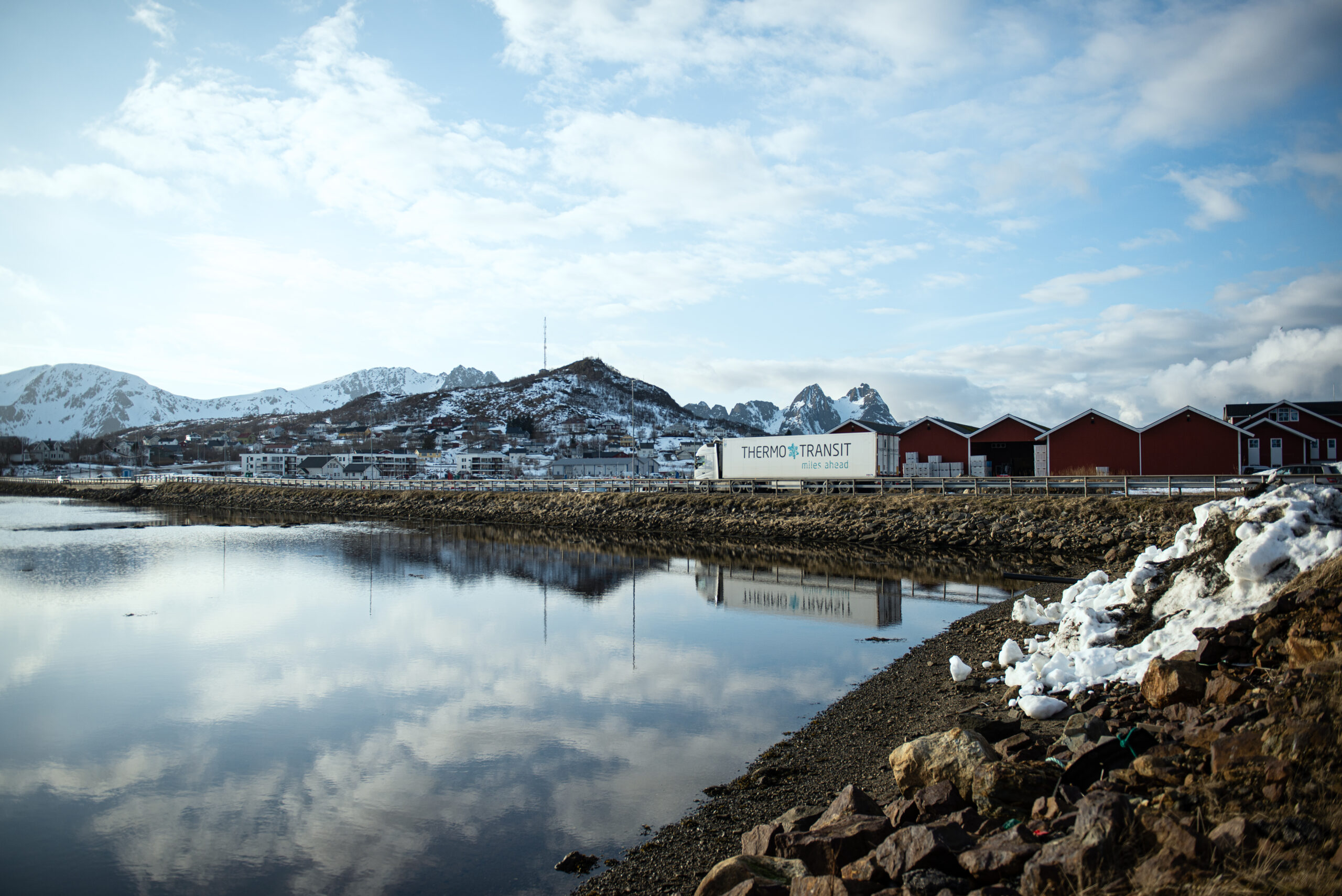Share it:
Norway’s skrei – a migratory Arctic cod – carries centuries of cultural and economic weight on its fins. From medieval stockfish exports that connected Nordic communities to present-day luxury fillets sold at premium prices, skrei continues to shape the coastal regions of northern Norway. Yet in modern times, the success of this prized fish depends as much on logistics as it does on the skill of the fishers who haul it in each winter.
Skrei’s Evolving Economic Impact in Norway
Norway’s total seafood exports climbed to an unprecedented 2.8 million tonnes worth NOK 175.4 billion in 2024, underlining the broader resilience of the Norwegian economy. Despite a turbulent global market, the fisheries sector continued to perform strongly. However, reduced cod quotas exerted downward pressure: fresh wild cod exports plunged by 29 per cent in volume, to 28,399 tonnes, and fell 23 per cent in value, to NOK 1.8 billion – reaching the lowest export volume since 2011[1].
Even with these challenges, cod still constituted a sizeable portion of the NOK 11.7 billion generated by cod, reflecting careful resource management and sustained demand. Government policies emphasizing responsible fishing practices, alongside the sector’s global reputation for quality, have continued to bolster Norway’s export performance. Ultimately, in a year characterized by reduced quotas and macroeconomic headwinds, skrei’s steady appeal illustrates how strategic stewardship of natural resources can align with continued economic growth – underscoring the fish’s iconic role in both coastal livelihoods and the national economy.
Logistics as the Unsung Hero
Behind every successful skrei season, a network of specialized services ensures the fish travels from Arctic waters to restaurants across Europe in best condition. Thermo-Transit, seafood and fresh food specialized logistics company, provides road transport solutions and storage possibilites for this vital product in the supply chain. In 2024 alone it moved over 85,000 tonnes of fish, connecting local fishing communities from far-north Norway to markets in Denmark, Spain, Greece, and beyond.
Transporting fresh skrei demands a tightly controlled cold chain from the moment fish leave port until they reach their final destination. Proper refrigeration, precise temperature monitoring, and swift delivery all determine whether this delicate resource retains its premium quality and flavor. Every hour counts; route planning must balance speed, cost-effectiveness, and efficiency to ensure skrei remains competitive in global markets.
Beyond speed and cooling, logistics also involve managing complex paperwork, border procedures, and stringent certifications – particularly when crossing multiple national lines. These factors can be just as pivotal in protecting product integrity as on-board refrigeration. According to Thermo-Transit, an established logistics provider that specializes in perishable goods, there are no many companies that can provide such solutions.
“By combining real-time temperature monitoring, carefully structured transit routes, and thorough compliance measures, we minimize risk in a vulnerable supply chain, helping preserve the high value of skrei from dockside to dinner plate. Our mission goes beyond transport; we are part of a larger ecosystem that sustains jobs, preserves traditions, and connects Norwegian seafood to the world,” says Jens Romer Sode, CEO of Thermo-Transit.
Award-Winning Role
Norway-based logistics provider Thermo-Transit recently received the Skrei Prize 2025 – an honor presented by Øksnes Næringslivsforening, Vesterålen Skreifestival, and Øksnes Fiskarlag to companies that significantly strengthen the skrei industry.
“This award highlights the importance of precise, reliable shipping in upholding Norway’s fishing heritage. We see ourselves as partners to coastal communities, helping skrei reach markets worldwide without compromising on freshness or tradition,” says Sode.
The award underscores how dependable transport is vital to maintaining the quality and reputation of one of the country’s oldest exports. As more fisheries transition to value-added products – such as fillets and collagen supplements – efficient logistics become essential for expanding operations.
Moving Forward: Tradition Meets Technology
The future of skrei remains largely optimistic. Norway’s centuries-old expertise in fishery management, combined with cutting-edge logistics, suggests that this Arctic cod still has a long journey ahead – both literally and figuratively. Whether it’s adopting new temperature-control tech, integrating real-time visibility data, or proactively addressing the climate footprint of transport, logistics providers, especially road transport companies, have an opportunity to be service providers for innovation across the entire seafood value chain.
In the end, skrei’s continued prosperity and cultural relevance hinge on a dynamic partnership between fishers, scientists, policy-makers, and logistics experts. Thermo-Transit’s Skrei Prize may reflect a well-earned triumph, but the industry’s next chapter demands even more transparency, environmental stewardship, and technological prowess. Only then can Norway’s most iconic fish remain a symbol of both heritage and forward-thinking enterprise.
[1] https://en.seafood.no/news-and-media/news-archive/2024-was-the-best-year-ever-for-norwegian-seafood-exports/



